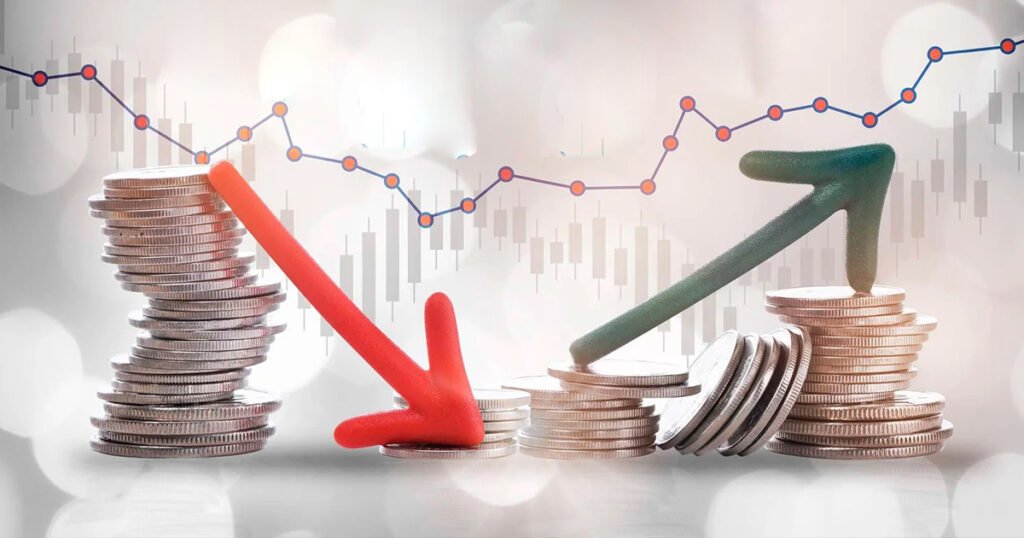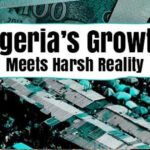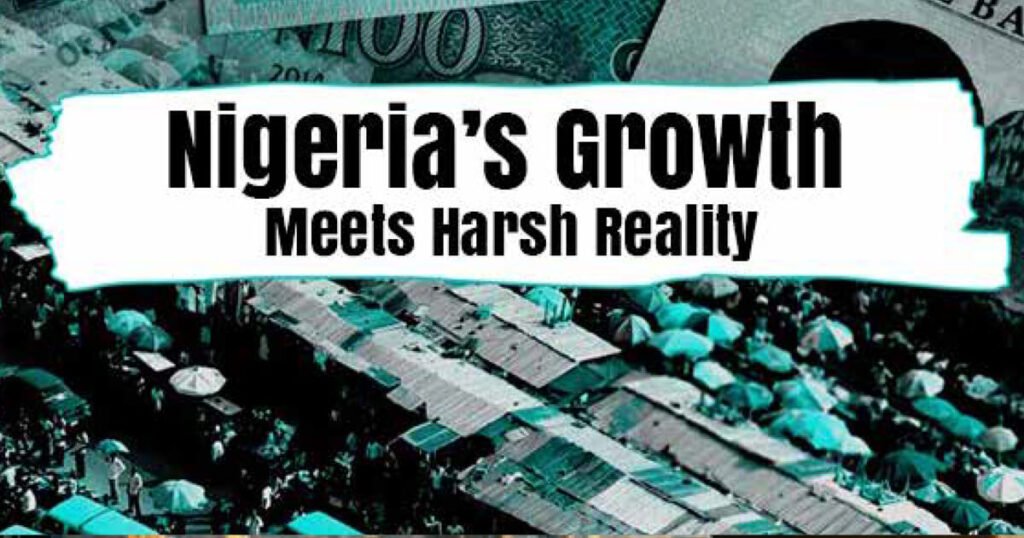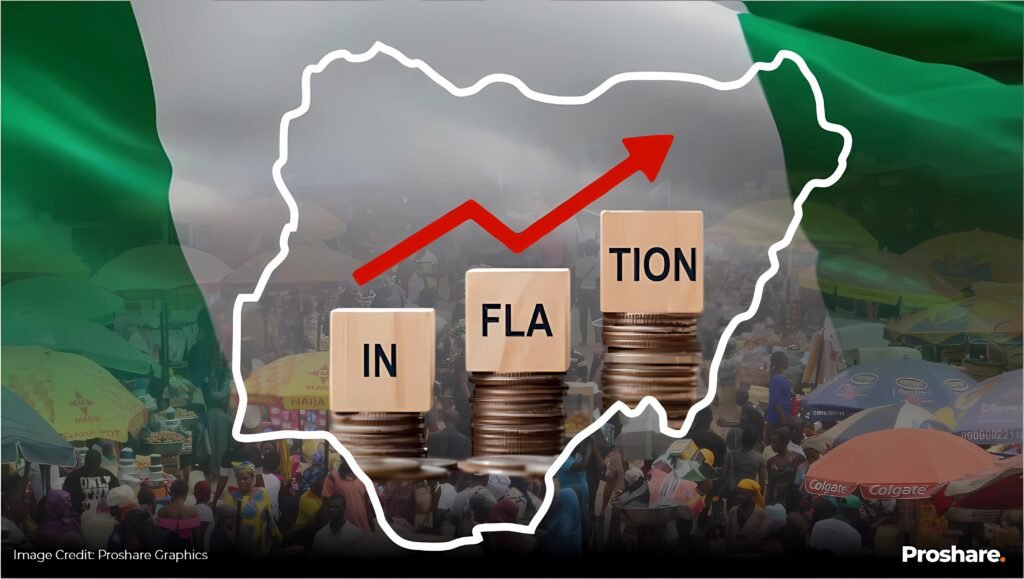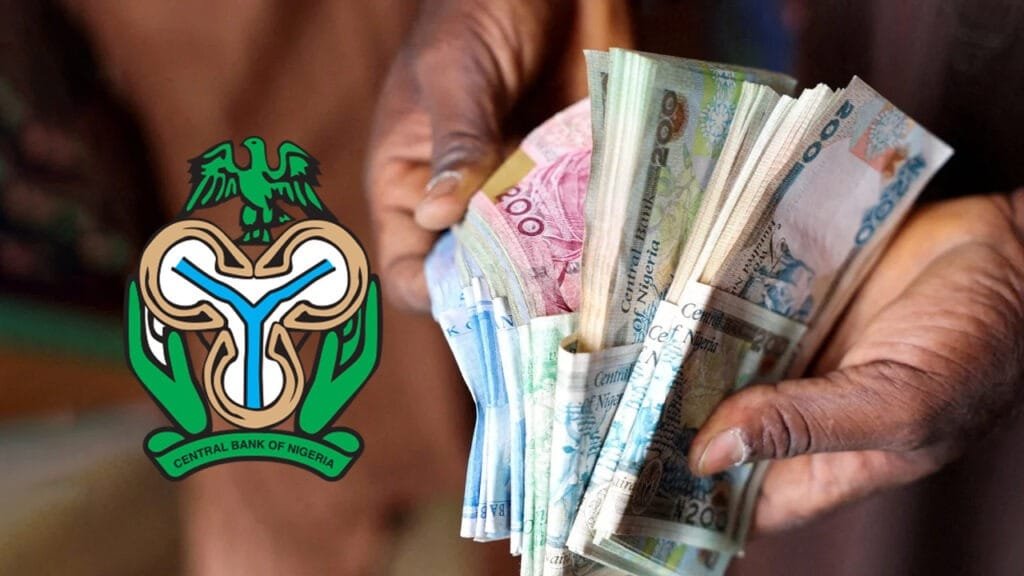Nigeria, one of Africa’s biggest economies and often referred to as the “Giant of Africa”, stands at a crucial crossroads. After years of economic turbulence, the country emerged from recession in the second quarter of 2025.
With over 200 million people and an economy that has defied easy definitions for decades, Nigeria’s recent emergence from recession in Q2 2025 has been heralded as a major milestone. But beneath the statistical glow lies a deeper dilemma: Can this fragile recovery morph into robust, sustained growth without bold reforms— particularly, a unified foreign exchange (FX) policy?
A recent Reuters poll has sounded a cautious note. While it projects that Nigeria may indeed have exited recession with a 1.55% year-on-year growth rate in the second quarter, the sustainability of that momentum remains uncertain. Economists are in near-unanimous agreement: unless Nigeria adopts a single, transparent FX framework, the country’s recovery may prove to be yet another false dawn.
Bouncing Back, But On Shaky Legs
Nigeria’s journey into recession began in late 2015, brought on by collapsing oil prices, militant disruptions in the Niger Delta, and chronic dollar shortages. Since then, the country has seen a rollercoaster of minor recoveries and steep setbacks, made worse by an unpredictable currency regime that spooked investors and hampered business operations.
The signs of a turnaround started trickling in earlier this year. Foreign exchange availability improved modestly, and oil production recovered after years of underperformance. These developments helped lift Nigeria’s economy marginally in Q1 2025, and further gains were observed in Q2. However, the optimism has been tempered by sobering realities: inflation remains high, the naira remains volatile, and investor confidence is still fragile.
“Emerging from recession is not the same as achieving sustainable growth,” a Lagos-based economist told The Vaultz Africa. “The fundamentals are still weak. Business owners remain wary because they don’t know what tomorrow’s exchange rate will be.”
The Currency Conundrum
At the heart of Nigeria’s economic malaise is its multi-tiered foreign exchange system. There’s the official rate set by the Central Bank of Nigeria (CBN), a rate for government transactions, another for investors and exporters (known as the I&E window), and, of course, the ever-influential black market rate. The resulting arbitrage opportunities and policy uncertainty have discouraged foreign investment and made planning nearly impossible for local businesses.
In April 2025, the Central Bank introduced further reforms aimed at liberalizing the FX market, especially through the I&E window. This move narrowed the gap between the black market and official rates, attracting a wave of foreign capital. Nigerian assets— once avoided like a contagious disease— suddenly started appearing on the radar of international investors.
But the FX regime remains far from unified. “Without a single, market-determined exchange rate, you’re not really liberalizing,” said a former CBN official. “You’re just putting lipstick on a three-tiered pig.”
A Rebased Economy with a Mixed Message
Complicating the picture is Nigeria’s newly rebased Gross Domestic Product (GDP). The National Bureau of Statistics (NBS), in July 2025, released fresh figures that recalibrated the base year from 2010 to 2019. The result? Nigeria’s economy is now estimated to be 41.7% larger than previously believed, with a nominal GDP of ₦372.82 trillion for 2024— roughly $243.5 billion using the current exchange rate of ₦1,529.53 per dollar.
While the numbers are impressive, they are not game-changing. Nigeria remains the fourth-largest economy in Africa in nominal terms, still trailing behind South Africa, Egypt, and Algeria. The rebasing exercise, although standard international practice, is not a cure-all for structural problems.
However, it has revealed something worth celebrating: the Services sector is now Nigeria’s dominant growth engine. Contributing 57.5% to the country’s GDP in Q1 2025 and growing by 4.33%, the sector includes trade, telecommunications, real estate, and financial services— all of which are benefiting from rising digital adoption and urbanization.
The Shift from Oil to Ideas
For decades, Nigeria’s economy was shackled to the vagaries of crude oil prices. While oil still plays a significant role— particularly in foreign reserves and government revenue— it no longer dominates the GDP. This marks a subtle but important structural shift.
Digital economic activities are gaining steam. From fintech companies revolutionizing payments to e-commerce platforms reshaping consumer habits, Nigeria’s services-oriented industries are positioning the country for a future less reliant on oil. However, their growth is constrained by erratic policy implementation, especially around foreign exchange.
Without reliable access to dollars, building a thriving digital economy becomes nearly impossible. Companies struggle to pay for cloud services, import essential tech infrastructure, or expand operations across borders. A unified foreign exchange policy isn’t just a concern for oil importers— it’s a foundational requirement for innovation and the growth of Nigeria’s tech-driven sectors.
Inflation, Import Limits, and the Middle-Class Squeeze
The FX chaos hasn’t just stifled businesses— it’s hurt consumers. Over the past several years, Nigeria has imposed import restrictions to reduce dollar outflows and protect local industries. But these measures have also driven up prices, creating a cost-of-living crisis that erodes disposable income.
Even with improved foreign exchange access in recent months, inflation remains stubbornly high. In June 2025, year-on-year inflation was pegged at 22.4%, with food inflation even higher. For Nigeria’s growing middle class, it means shrinking purchasing power, reduced savings, and increased pressure on salaries.
The central bank has occasionally intervened by injecting dollars into the market, but these interventions are usually temporary and reactive. Until a sustainable FX framework is implemented, inflation control will remain elusive.
South Africa, Egypt, Algeria: The Gap Widens
While Nigeria inches its way back to growth, other African economies are pulling ahead. South Africa’s GDP stands at $410.34 billion, Egypt’s at $347.34 billion, and Algeria’s at $268.89 billion. Despite Nigeria’s population advantage, the country’s nominal output lags significantly.
The comparison is sobering, especially considering Nigeria’s potential. Economists point to poor infrastructure, weak institutions, regulatory inconsistencies, and—yes—a fragmented FX system as reasons for underperformance.
Nigeria has the population, the talent, and the market potential to drive significant economic growth. However, what continues to hold the country back is a lack of policy clarity. While a unified foreign exchange rate may not be a silver bullet, it is a critical step toward unlocking investment, improving sectoral performance, and restoring confidence across the economy.
Data Revolution, The Silent Hero
One underappreciated aspect of Nigeria’s economic transformation is the role of improved data collection. The recent rebasing was the most comprehensive in the country’s history, incorporating previously ignored sectors such as modular refineries, pension fund administrators, digital services, and even domestic households as employers.
Surveys like the National Agricultural Sample Survey and the Nigerian Living Standards Survey were integrated into the GDP calculation, offering a more realistic picture of Nigeria’s economic structure.
This data revolution will not immediately translate into growth. But it will improve policymaking, guide investment, and help the government design more targeted interventions.
Agriculture and Industry: Signs of Life
Beyond services, there are modest signs of recovery in agriculture and industry. The agriculture sector posted a marginal growth of 0.07% in Q1 2025— better than the -1.79% contraction a year earlier. The industry sector also expanded by 3.42%, up from 2.35% in Q1 2024.
These gains are encouraging, but not yet transformative. The agriculture sector, for example, continues to suffer from outdated farming practices, poor storage facilities, and limited access to finance. Meanwhile, the industrial sector is hamstrung by unreliable electricity, high import costs for machinery, and FX volatility.
As such, a unified foreign exchange regime could significantly reduce transaction costs, enhance economic planning and forecasting, and boost the competitiveness of Nigerian goods and services— not only within the domestic market but also across regional and global export destinations.
The $1 Trillion Ambition
President Bola Ahmed Tinubu has set an ambitious goal: to grow Nigeria’s GDP to $1 trillion within the next decade. On paper, it’s possible. With a large population, abundant natural resources, and a vibrant entrepreneurial class, Nigeria has all the ingredients for explosive growth.
But reaching that milestone will require more than ambition. It will demand tough reforms, especially in the FX market. Without a predictable, investor-friendly exchange rate system, Nigeria will struggle to attract the kind of long-term capital needed for infrastructure, manufacturing, and technological innovation.
The foreign exchange issue has become a deep-rooted problem— slowly eroding confidence and distorting economic fundamentals. No economy aspiring to reach the $1 trillion mark can do so on the back of a fragmented and unstable currency framework.
The Missing Piece in Nigeria’s Recovery
Nigeria’s path to economic recovery is not solely dependent on growth figures or rebased GDP numbers— it hinges on confidence. Investors, entrepreneurs, and consumers alike need to believe that the country’s economic managers are steering the economy with competence, transparency, and long-term vision. Without that trust, reforms will falter, capital will flee, and economic progress will stall.
A unified foreign exchange policy could serve as a powerful signal of that commitment. It would demonstrate that Nigeria is serious about eliminating uncertainty, attracting foreign investment, and creating a level playing field for businesses. Policy clarity in the FX space would do more than stabilize the naira— it would restore the credibility that has eroded over years of inconsistent and opaque decision-making.
Until investor confidence is rebuilt through bold, transparent reforms, Nigeria remains in limbo. The country may have technically exited recession, but without a clear direction and investor confidence, its recovery rests on fragile ground. The numbers might improve, but the economy cannot truly thrive without belief in the system that governs it.
For Nigeria to truly break free from the boom-bust cycle, the path forward must be paved with clarity, not confusion. One market, one rate, one future!


